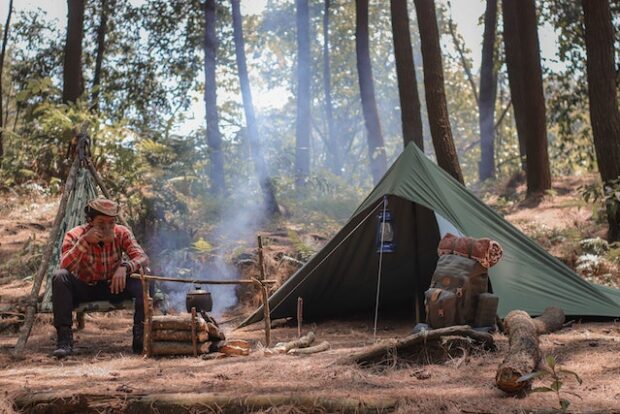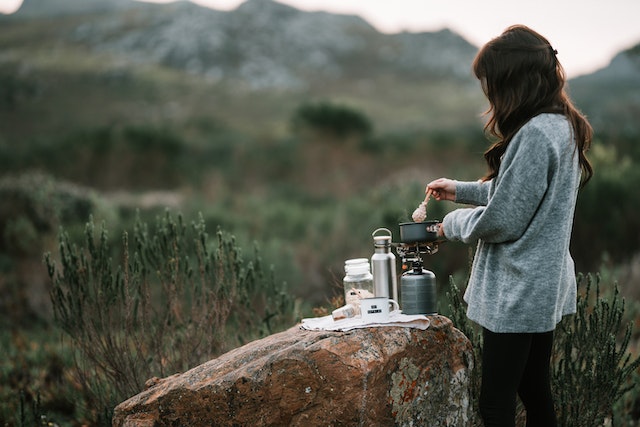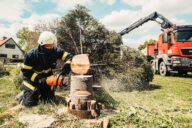Picture this: a serene escape to the great outdoors, surrounded by nature’s beauty, away from the hustle and bustle of everyday life. Camping offers a unique opportunity to connect with nature, bond with friends and family, and create unforgettable memories. But for a successful camping trip, you need to pack smartly. In this guide, we’ll explore the camping essentials that will ensure your next outdoor adventure is an absolute delight.
A Comfortable Shelter
Your shelter is your sanctuary in the wilderness. Here’s what you need:
1. A Reliable Tent
Choosing the right tent for your campsite is crucial. Consider the size of your group and the expected weather conditions. Look for one with good ventilation and a rainfly for those unpredictable UK showers.
2. Ground Protection
Lay down a ground tarp under your tent to shield it from moisture and punctures. It also provides extra insulation.
3. Sleeping Essentials
A good night’s sleep is essential. Don’t forget:
- A sleeping bag suited to the temperature range.
- A sleeping pad or inflatable mattress for comfort.
- A pillow or a makeshift one with clothes in a stuff sack.
The Art of Campfire Cooking
Campfire cooking can be a delightful experience, but it’s best to have some reliable equipment:
4. Camp Stove
While open fires are fun, a camp stove offers reliability and control. Some UK campsites may have restrictions on open fires, so it’s a smart choice.
5. Cookware and Utensils
A compact set of pots, pans, and utensils makes meal preparation a breeze. Look for non-stick options for easy cleaning.
6. Fuel and Firestarter
Make sure you have enough fuel for your camp stove. And for those campfire nights, bring waterproof matches or a reliable fire starter.
7. Cooler
Keep perishable items fresh with a cooler and ice packs. Proper food storage is key to preventing spoilage.
Dressing for the Elements
The UK’s weather can be unpredictable, so layering is essential:
8. Weather-Appropriate Clothing
Pack moisture-wicking base layers, insulating mid-layers, and waterproof outerwear. Extra clothes are a must for unexpected rain or spills.
9. Sturdy Footwear
Invest in comfortable, waterproof hiking boots or shoes to keep your feet dry and supported while exploring.
10. Sun Protection
A wide-brimmed hat and sunglasses shield you from the sun’s rays, while lightweight gloves keep your hands warm on chilly nights.
Essential Tools and Gear
Every camper needs a trusty toolkit:
11. Multi-tool
A versatile tool with pliers, knives, and screwdrivers can handle various tasks around the campsite.
12. Lighting
Bring a headlamp or flashlight to illuminate your campsite at night and keep your hands free for tasks like cooking or tent setup.
13. First Aid Kit
Be prepared for minor injuries with a well-stocked first aid kit, including bandages, antiseptic wipes, and pain relievers.
14. Navigation Tools
Maps, a compass, or a GPS device are essential for safe exploration.
15. Trash Management
Always leave no trace. Bring trash bags to pack out your rubbish and keep the campsite clean.
Food and Cooking Supplies
Satisfying your appetite while camping requires planning:
16. Thoughtful Meal Planning
Plan your meals in advance, opting for non-perishable, easy-to-prepare options like canned goods, dehydrated meals, and snacks.
17. Cooking Essentials
Include a spatula, tongs, and a pot gripper for safe cooking over a campfire or camp stove.
18. Dining Utensils
Don’t forget plates, bowls, cups, and cutlery for enjoying your campfire feasts.
19. Water Management
Carry plenty of water in reusable containers or a hydration system, and ensure access to water purification methods.
Personal Comfort and Hygiene
Maintaining personal hygiene is essential for a pleasant camping experience:
20. Toiletries
Pack a compact toiletry kit with essentials like a toothbrush, toothpaste, soap, and toilet paper. Familiarize yourself with campsite facilities, as they can vary.
21. Quick-Drying Towel
A microfiber towel dries quickly and is ideal for swimming or post-hike showers.
22. Insect Repellent and Sunscreen
Keep bugs at bay with insect repellent or citronella candles. Protect your skin from UV rays with sunscreen (SPF 30 or higher).
23. Personal Medications
If you have any prescription medications, ensure you have an ample supply.
Entertainment and Relaxation
Camping isn’t just about survival; it’s about enjoying the moment:
24. Entertainment
Take along a good book or your e-reader, or pack portable games for evening fun.
25. Comfortable Seating
A foldable camp chair lets you relax by the campfire in comfort.
26. Capture Memories
Bring a camera or smartphone to document your adventures and the stunning natural beauty around you.
27. Journal
A notebook and pen can help you jot down thoughts, sketch, or simply document your camping journey.
Safety First: Emergency Equipment
Always prioritize safety while camping:
28. Emergency Contacts
Share your itinerary and a list of emergency contacts with a trusted friend or family member.
29. Distress Signal
A whistle can be a lifesaver in emergencies, as it’s a loud and universally recognized distress signal.
30. Emergency Blanket
Carry a lightweight, reflective emergency blanket to stay warm in unexpected cold weather or emergencies.
31. Fire Safety
If you plan to have a campfire, bring a small fire extinguisher to ensure safety.
32. Personal Locator Beacon
For remote or solo camping, consider a personal locator beacon (PLB) for added peace of mind.
Leave No Trace Principles
As responsible campers, we should always strive to minimize our environmental impact:
1. Plan Ahead and Prepare
- Research and choose established campsites.
- Familiarize yourself with campsite rules and regulations.
- Plan meals to minimize food waste.
- Pack reusable items to reduce trash.
2. Travel and Camp Responsibly
- Stick to designated trails and campsites.
- Avoid trampling on vegetation and disturbing wildlife.
- Camp at least 200 feet away from lakes and streams.
3. Dispose of Waste Properly
- Pack out all trash, leftover food, and litter.
- Use established restroom facilities or follow proper waste disposal methods.
- Leave natural and cultural features as you found them.
4. Leave What You Find
- Do not pick plants or disturb historical or cultural artifacts.
- Respect wildlife by observing from a distance and not feeding them.
Camping is an opportunity to reconnect with nature, create cherished memories, and embrace a simpler way of living. By packing these essentials and adhering to Leave No Trace principles, you can make your camping adventure not only enjoyable but also sustainable and responsible. So, get out there and embrace the great outdoors—you won’t regret it!











